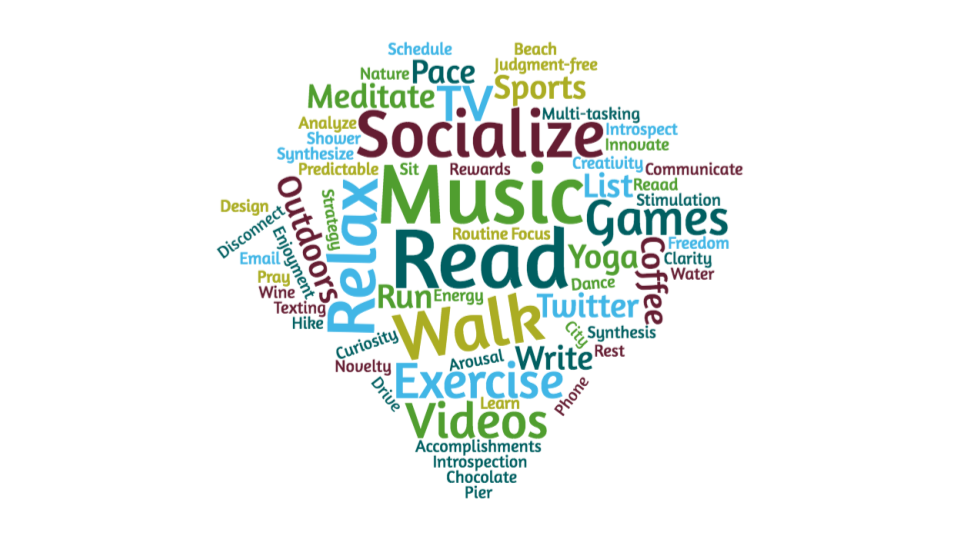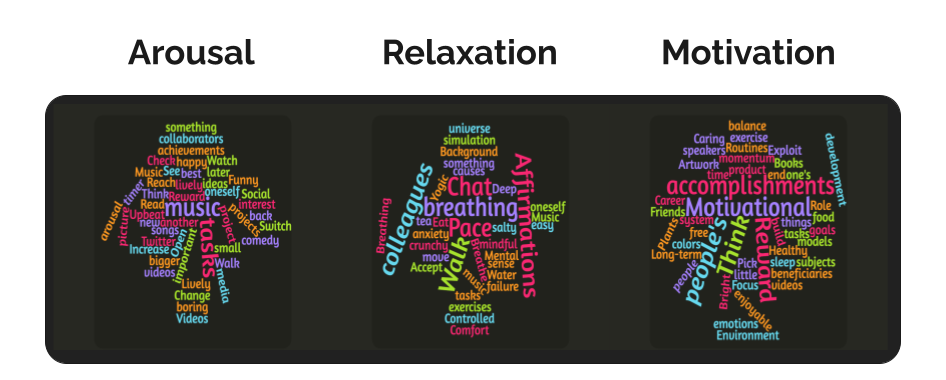The most valuable asset of a 21st-century institution, whether business or nonbusiness, will be its knowledge workers and their productivity (Drucker, 1999). Knowledge work includes “non-routine problem solving” that requires considerable amounts of concentration and creativity to perform. The complexity of knowledge work is often caused by interruptions, context-switching, and high workload conditions. Given this complexity among other demands in work settings, how do knowledge workers explore and exploit their tasks to optimize flow in their work? How does work productivity impact on their health and wellbeing? In this project, we conducted pilot interviews and an informal focus group with knowledge workers in order to: identify heuristics, biases, rituals and habits that are adopted by knowledge workers; compare patterns and trends among groups of knowledge workers; generate user personas and anti-personas that are relevant to productivity multiplier tools; and, recommend knowledge work practices that yield high quality outcomes, good health and wellbeing.

We found word clouds to be helpful for visualizing results from our qualitative study with a lot of rich information. The top themes for favorite activities before, during and after knowledge work were music, read, socialize, relax, exercise, videos, and games. There was a clear preference of coffee over water.

When changing their work state towards flow, respondents tend to use music for arousal. They prefer to use breathing exercises, affirmations, and chatting with colleagues for relaxation. For motivation, people think about rewards and accomplishments.
In order to optimize their work flow, KWs adopt strategies based on their tasks, resources and emotions. Respondents use external support mechanisms, and the awareness of internal signals to work at their best. When KWs experience flow, they report of productive outcomes, and increases in well-being and satisfaction, which motivates them to perform even better. When there is a lack of productivity, the KW becomes dissatisfied and well-being declines. For future work, we plan to refine the interview schedule of questions, and generate a survey instrument for approved research of the Flow Choice Architecture.